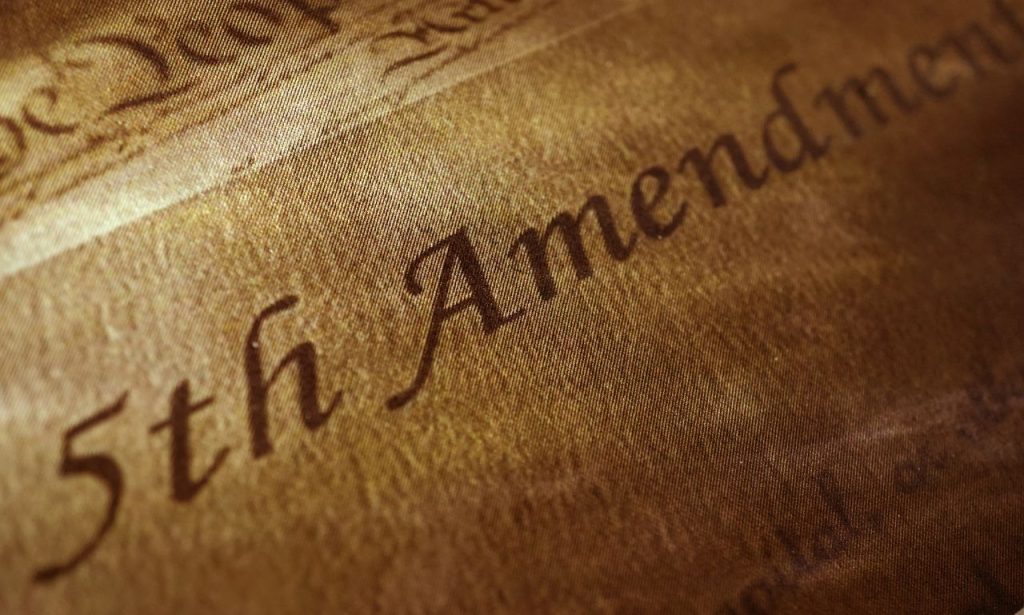Getting arrested is a jarring experience that upends your sense of safety and control. In the aftermath, emotions run high—fear, confusion, and even anger can cloud judgment. This article walks you through the most common missteps people make after an arrest, from talking too much to missing critical court dates. You’ll learn practical strategies, real‐world insights, and cautionary tales so that you can navigate the legal system with confidence and protect your rights every step of the way.
Importance of Understanding Your Rights
When the handcuffs click shut, it’s easy to feel powerless. Yet the U.S. Constitution and Supreme Court rulings grant you specific protections that must be respected. Knowing these rights isn’t just academic—it can mean the difference between a fair process and a derailed defense.
The Foundation of the Fifth Amendment

The Fifth Amendment guarantees that you cannot be “compelled in any criminal case to be a witness against yourself.” In practice, this means you have the right to remain silent. Silence does not mean uncooperative—police can still question you, but they must stop if you invoke your right. Chicago defense attorney Maria Gutierrez recalls a client who confessed after a marathon two-hour interrogation; had he said, “I invoke my right to remain silent,” the confession would have been inadmissible.
Miranda Warnings and Their Limits
You’ve heard the phrase “Miranda rights,” but do you know when they’re required? Police must read your Miranda warnings before a custodial interrogation. However, if officers are questioning you as a witness or making casual inquiries, they may not. In a 2018 case in Indiana, officers asked a suspect about a burglary before an official arrest, later arguing that Miranda didn’t apply because he wasn’t “in custody” yet. The court disagreed, emphasizing that any formal restraint triggers the reading of rights.
Attorney-Client Privilege
Once you request a lawyer, all questioning must cease until your attorney is present. Unfortunately, many people don’t explicitly ask for counsel. If you say, “Maybe I need a lawyer,” that can be interpreted as a sign of uncertainty. Instead, say, “I want a lawyer now,” and repeat it if necessary. This clear language shuts down any further questioning.
Resisting Arrest
It sounds intuitive: fight back, escape, or run—but resisting arrest almost always makes matters worse. Charges escalate from misdemeanors to felonies, and cases drag on.
Why “Just a Little Push” Is a Big Problem
Even a gentle shove can become a felony count of “resisting arrest” or “assault on an officer.” In Texas, a 2019 study showed that 85% of resisting‐arrest charges stemmed from nonviolent acts, like pulling away, leading to additional jail time and higher bail.
Real‐World Insight: A Cautionary Tale
Consider Jessie, a college student arrested for underage drinking. Panicked, she struggled when officers tried to handcuff her. The misdemeanor alcohol charge ballooned into resisting arrest and assaulting an officer. Her parents ended up spending thousands on fines and legal fees—none of which would have happened if she’d complied.
Remaining Silent
Talking after an arrest is like pouring gasoline on a fire. Innocent comments can be twisted, and nervous babble can sound like a confession.
The “Blind Confession” Phenomenon
Police officers are trained to exploit human psychology. They might say they have “irrefutable evidence” or that “everyone else has confessed.” These tactics prey on fear. Rather than argue, say, “I’m invoking my right to remain silent,” and ask for a lawyer.
Don’t Volunteer Unsolicited Information
Even seemingly innocuous details—your whereabouts, your relationship with a witness—can be used against you. A study of New York City arrests in 2020 found that suspects who spoke freely were 40% more likely to be convicted than those who stayed silent.
Avoiding Social Media Discussions
In the heat of the moment, you might feel compelled to post your site on Facebook, Twitter, or Instagram—a big mistake.
Digital Footprints and Discovery
Prosecutors can subpoena your social media, and courts routinely admit posts and messages as evidence. A TikTok video of a celebratory party after bail can appear to be evidence of consciousness of guilt in court.
A True Story: When a Tweet Backfired
In Ohio, defendant Marcus tweeted, “Can’t believe they tried to pin that on me” immediately after arrest. Prosecutors played the tweet in court as evidence he knew he was guilty and was trying to sway public opinion—hardly an effective defense.
Securing Competent Legal Counsel
Not all lawyers are created equal. Your choice of counsel can make or break your case.
How to Choose the Right Lawyer
Look beyond flashy billboards. Ask for referrals, read client reviews, and meet in person to establish trust. Key questions include:
- How many cases like mine have you handled?
- What is your trial record?
- What fees and payment options are available?
A local DUI attorney in Denver, for instance, might know the tendencies of the judges in your county—an edge an out‐of‐town lawyer won’t have.
The Importance of Local Legal Knowledge
Criminal law varies by jurisdiction. Indiana Code § 35-38-9–4 regarding expungement has specific timelines and eligibility rules that differ from those in Illinois or Ohio. A lawyer familiar with local plea trends and bond schedules can craft a strategy that’s both aggressive and realistic.
The Process of Posting Bond
Bail is meant to ensure you return to court. Mismanaging bonds can lead to unnecessary jail time or forfeiture of funds.
Steps to Secure Release
Once bail is set, act fast:
- Notify Family or Friends: Get someone to post bond immediately.
- Consider a Bondsman: A bondsman posts bail for a fee (usually 10–15% of the total).
- Understand the Conditions: Some bonds require GPS monitoring or impose travel restrictions.
Procrastination can leave you behind bars for days, delaying your defense and disrupting your life.
Financial Considerations and Options
Bail bonds tie up capital you might need for rent, childcare, or daily expenses. Ask the court about a bail reduction hearing. Many jurisdictions will lower bail if you demonstrate community ties and employment. In one Marion County, Indiana case, a judge cut a $25,000 bond to $5,000 when presented with proof of steady jobs, saving the defendant thousands.
Attending Court Dates
Courts schedule hearings, arraignments, and pretrial conferences—missing any can have severe repercussions.
Consequences of Missing Court Dates
A missed court date triggers a bench warrant. Your bond can be revoked, and you may face additional fines or jail time in addition to the original charges.
Ways to Stay Organized and Informed
- Calendar Alerts: Use your phone or online calendar to set reminders 7 days, 24 hours, and 2 hours before each hearing.
- Confirm Dates: Call the court clerk a week in advance to verify times and locations.
- Court liaisons: Many public defender offices assign case managers who remind you of upcoming dates.
Understanding Expungement
A criminal record can haunt you for years. Expungement offers a path to a clean slate.
The Benefits of Criminal Record Expungement
With an expunged record, you can lawfully say “no” when asked about past arrests on job applications, rental agreements, and licensing forms. A 2019 Harvard study found that individuals with expunged records were 20% more likely to gain employment within six months than those without relief.
The Expungement Process
Indiana Code § 35-38-9 outlines eligibility:
- Waiting Period: Typically, 2 years after case dismissal or sentence completion.
- Petition Filing: File in the county where convicted.
- Notice: Notify the prosecutor’s office and local law enforcement.
- Hearing: Present your case before a judge.
- Order: If granted, the court shall notify state agencies to seal the records.
Missing a filing deadline or failing to serve proper notice can derail the process.
Common Missteps During Legal Proceedings

Legal jargon and procedural intricacies trip up many defendants. Understanding the landscape helps you avoid pitfalls.
Misunderstanding Legal Terminology
Words like “arraignment,” “plea bargain,” and “pretrial motion” carry distinct meanings. Confusing them can lead to missed opportunities. During an arraignment, for example, you formally enter a plea. Failing to enter at all can result in a “not guilty” by default but also forfeits your chance to request bond adjustments or counsel.
Failing to Gather Proper Evidence
Evidence isn’t just exhibited at trial—it’s everything you bring to your lawyer. Witness statements, photographs, phone records, and even social media posts can bolster your defense. A client in Whitley County nearly lost a favorable plea deal because he hadn’t preserved text messages proving an alibi. Luckily, they were recovered, and his sentence was reduced significantly.
Conclusion
An arrest doesn’t have to define you. By understanding and exercising your rights, remaining silent, avoiding social media, selecting skilled local counsel, managing your bond wisely, attending every court date, and planning for expungement, you can steer your case toward the best possible outcome. Remember: each misstep compounds the challenges you’ll face. Act deliberately, ask questions, and lean on experienced professionals who know the ropes.
ALSO READ: How to Beat an Aggravated Robbery Charge
FAQs
Invoke your right to remain silent: “I’m invoking my right to remain silent and want a lawyer.”
As soon as possible. Delay can add days to your prison sentence and complicate your defense.
Eligibility varies by state and offense. Clean‐up laws often exclude violent felonies and repeat DUI convictions.
A bench warrant is issued, and a bond may be revoked; you may also face additional charges or fines.
Seek local referrals, check experience with similar cases, review trial records, and confirm fee structures before




